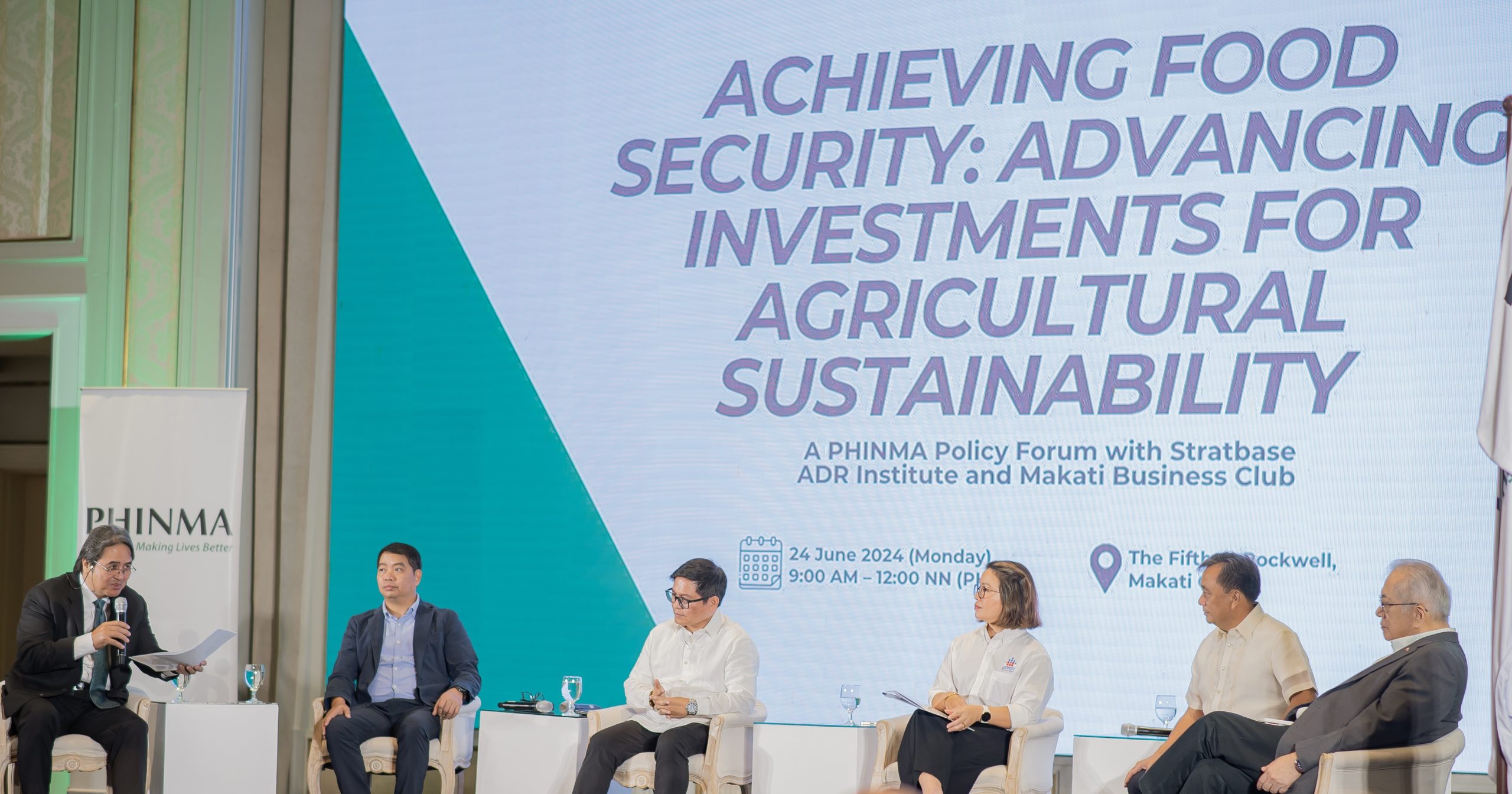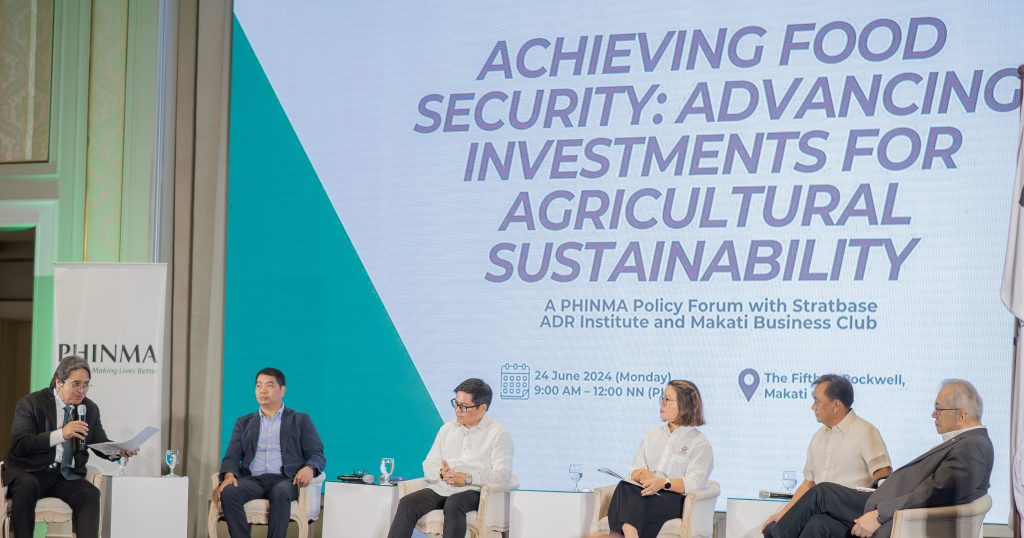PHINMA policy forum highlights private sector’s role in PH food security, agricultural sustainability


Businesses must invest in projects and initiatives that strengthen the country’s food supply and agricultural productivity especially as the climate crisis continues to worsen, executives of PHINMA Corporation said in its policy forum this week.
The event, titled “Achieving Food Security: Advancing Investments for Agricultural Sustainability,” gathered leaders of PHINMA and its Construction Materials Group (PHINMA CMG), agriculture and other government officials, and other business and industry leaders on Monday to facilitate the crucial discourse on addressing interlinked challenges of rising temperatures, extreme weather events, disrupted supply chains, and inadequate logistics infrastructure.
“Doing things responsibly is not anymore an option. It’s something we all have to be conscious about and so when the private sector or any business makes an investment, part of it is really looking at the situation. When we look at agriculture or food security as an issue, we look at the whole value chain,” said Danielle del Rosario, Chief Operating Officer of PHINMA CMG company Union Insulated Panel Corporation (UIPC), during the event.
Joining her in the forum were PHINMA Director and Executive Vice President, Construction Materials Eduardo Sahagun; Department of Agriculture (DA) Undersecretary Asis Perez; DA Spokesperson Asec. Arnel De Mesa; Mindanao Development Authority (MinDA) Deputy Executive Director Asec. Romeo Montenegro; Cold Chain Association of the Philippines President Anthony Dizon; Stratbase ADR Institute President Dindo Manhit; and Makati Business Club Executive Director Bobby Batungbacal.
During the forum, Asec. De Mesa reported a high level of post-harvest losses in the Philippines, with crops like rice, onions, mangoes, and bananas along with fish posting double-digit rates of loss. With this, del Rosario noted that the private sector can make large investments in industries like food production, warehousing, and cold chain logistics to help reduce incidents of wastage particularly among farmers’ fresh produce, while also keeping in mind the need for sustainable solutions.
“For companies like PHINMA, we’re always looking for ways to uplift Filipinos and the way we live our lives by giving the basic things like construction materials. The whole food value chain really necessitates a collaboration of efforts from the private sector and the strategic thought of the government,” explained del Rosario.
Meanwhile, Cold Chain Association of the Philippines President Anthony Dizon emphasized the need to ensure laws and policies, especially those concerning food security, must be translated down to the local level. He cited as an example perishable food, which must be kept below a certain temperature even when being sold in wet markets.
“Our dream is to enable farmers and fisherfolks to store their products for long periods, avoiding wastage and increasing the value of their goods. Our hope is for our country to have adequate cold chain facilities for the proper transport and storage of farm produce, meat, and fish, contributing to food security and food safety,” Mr. Sahagun emphasized.
Just last month, UIPC broke ground on a 700-million peso insulated panel manufacturing plant in Pampanga in response to the country’s food security and climate change challenges. With an annual production capacity of one million square meters of panels, the factory places UIPC in a better position to support cold chain facilities and related businesses and enhance their operations.